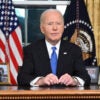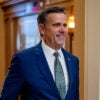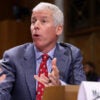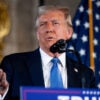Thanks to a vigilant civilian and a cop on horseback, many unsuspecting Americans were protected from another terrorist attack this month in New York City. We were lucky this time, but we will not always be so. Terrorists will learn from this as they do with every failed attempt. Will Washington?
Protecting the nation from attack is after all the federal government’s first responsibility. It is serious business, requiring nimble and sufficiently funded military, law enforcement, intelligence, and consular services that are performing at the top of their game.
But this is not the plan we hear from the Administration. The President and his Secretary of Defense are making significant cuts to military modernization and programs such as missile defense even as spending goes up on domestic initiatives. Even the homeland security budget is feeling the pinch. We should always be careful how we spend the taxpayer’s money, but we should not be singling out national security for budget cuts.
The Administration’s approach to national defense and foreign policy—which Rep. Eric Cantor described as growing complacency despite the warning signs at our Protect America Month kickoff–is worrisome. It is based on a faulty philosophy, one that is more European than American, as I argue in Liberty’s Best Hope. It is the “post-liberal” (i.e., social democratic) mindset that America is just another nation, that military power is provocative and the war on terrorism is merely an excuse for America to throw its weight around. It is an ideology that will ensure America’s decline.
That’s because it’s based on a dreary pessimism about America’s future. There is today a lot of gloom about America’s prospects as a great power. You see it the commentaries that bemoan the futility and limitations of American power. And you see it as well in the President’s policies of engaging enemies while snubbing allies.
It needn’t be this way. This nation will pass as a world leader only if we lose the will to lead. The greatest threat to America’s world leadership position today is not “imperial overreach,” in the words of Yale scholar Paul Kennedy, but “imperial government” at home. It is the rising debt, which ironically is caused not by spending on wars, but runaway entitlement and domestic spending. Unless we get that under control, all the dire predictions about America’s decline will indeed come true. But they will do so not because we faced some inevitable decline like Rome, but because our leaders refused to get our domestic house in order.
We became a world power to protect our freedoms, and we learned in two world wars how deeply tied they are to the freedom and security of countries around the world. We must make the defense of freedom our purpose again, and recommit ourselves to investing in our defenses so that America remains the indispensable nation.



























